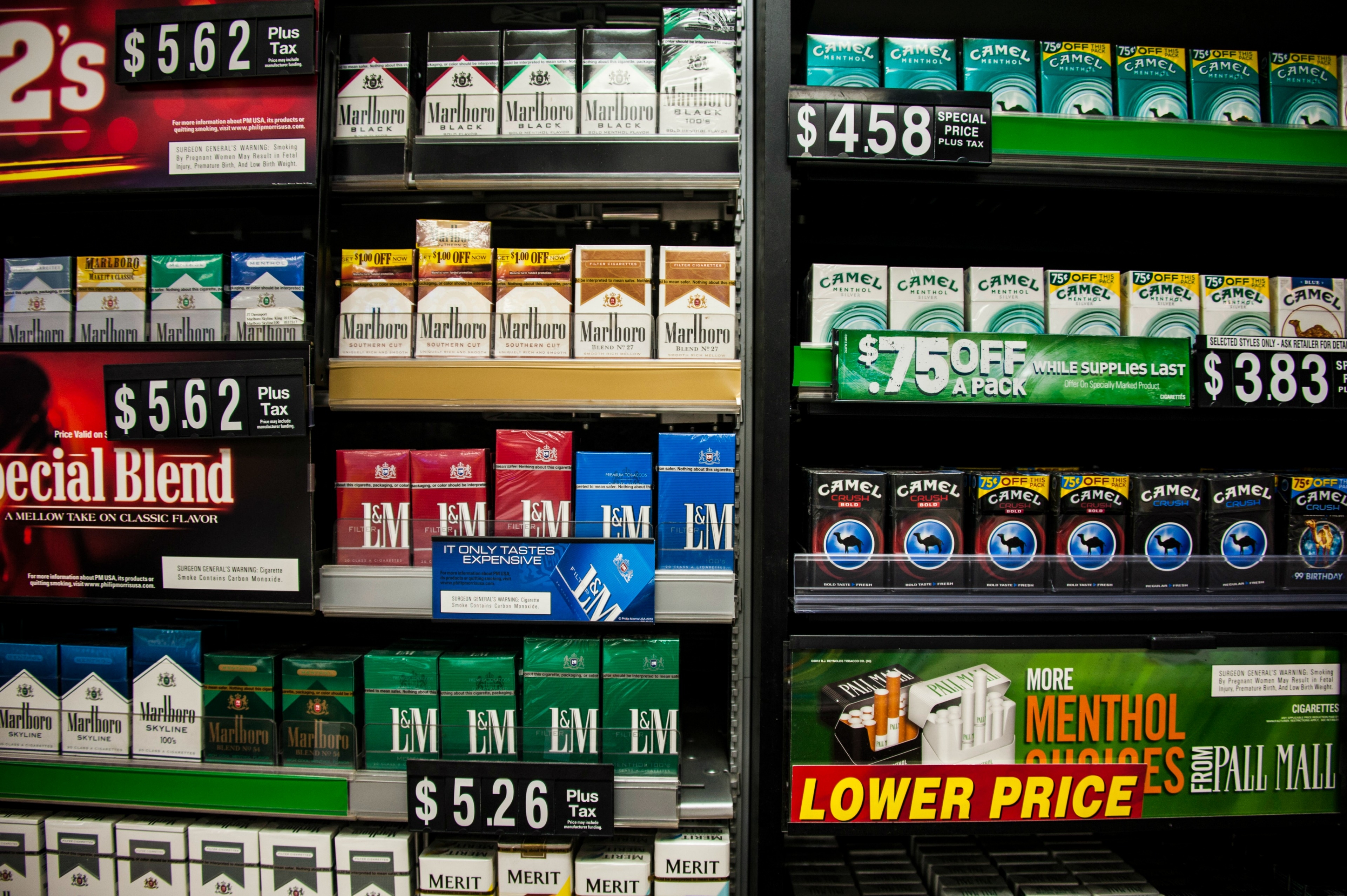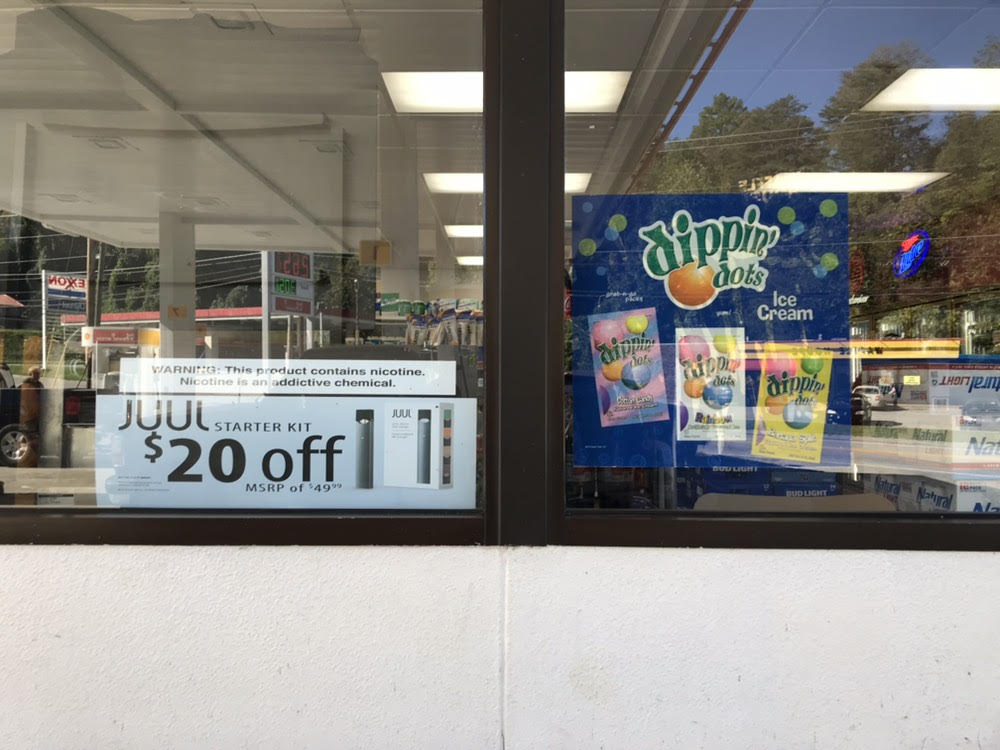Welcome to CounterTobacco.org’s “News and Research Roundup!” Each month we post a summary of the latest research, reports, and news stories on counteracting tobacco product sales and marketing at the point of sale (POS). Keeping up with what’s happening in the POS movement all across the country can help you choose policies and strategies that work best for your community. New research can help provide support for your work and evidence for the importance of the “War in the Store.” Have a story you don’t want us to miss? E-mail it to us!
New Research
Point-of-Sale Policy Impacts
- Single Cigar Price and Availability in Communities With and Without a Cigar Packaging and Pricing Regulation, Preventing Chronic Disease
cheap single cigars -
Across the state of Massachusetts between 2012 and June 30, 2018, 151 municipalities enacted policies that set a minimum price of $2.50 for a single cigar and $5.00 for multi-packs of 2 cigars, covering 46% of the state’s tobacco retailers. Pricing data collected from retailers across the state show that from 2014 to 2018, the average price of single cigars rose from $1.35 to $1.64. In communities without this pricing policy in place, prices were lower but also rose over time (from $1.17 in 2014 to $1.21 in 2018 compared to from $2.24 to $2.41 in places with the policy). During that same time period, the availability of single cigars decreased across the state from being sold in 49% of tobacco retailers to only 21%, and in communities with the pricing policy in place, availability decreased from 28% to 14%. In addition, Massachusetts Youth Risk Behavior Survey data indicated that use of cigars among high schoolers across the state dropped from 14.3% in 2011 to 6.7% in 2017.
- Learn more about point-of-sale tobacco pricing policies.
-
- Changes in cigar sales following implementation of a local policy restricting sales of flavoured non-cigarette tobacco products, Tobacco Control
- Providence, RI passed a sales restriction on flavored non-cigarette tobacco products other than mint, menthol, or wintergreen in January 2013. Scanner data collected between January 2012 and December 2016 show that flavored cigar sales decreased by 51% in Providence and by 10% in the rest of the state following implementation of the policy. While cigars labeled with explicit flavor names (e.g. cherry) decreased by 93% in Providence and not significantly in the rest of the state, sales of cigars labelled with concept flavors (e.g. jazz) increased by 74% in Providence and 119% in the rest of the state. Researchers conclude that while the policy decreased sales of flavored cigars within the city of Providence, cigars with concept flavors may avoid enforcement agency detection and undermine the policy.
- Learn more about flavored tobacco products and restricting product availability.
- Effect of menthol cigarette and other menthol tobacco product bans on tobacco purchases in the RTI iShoppe virtual convenience store, Tobacco Control
- In this study, adult menthol smokers shopped in a virtual store simulation with four conditions: 1) no menthol ban, 2) replacement of menthol cigarettes and ads with green replacement versions, 3) a menthol cigarette ban, and 4) an all menthol tobacco product ban. Participants who shopped in the store with a menthol cigarette or all menthol tobacco product ban were respectively 33% and 40% less likely to purchase cigarettes of any type than participants who shopped in the store with no ban. Participants who shopped in the store with the green replacement products were nearly 75% more likely to purchase cigarettes or a brand other than their usual brand compared to those who shopped in the store with no ban, while participants who shopped in the store with the menthol cigarette brand or the all menthol tobacco product ban were more than 3 times as likely to purchase a cigarette brand different than their usual brand than those who shopped in the store with no ban. The researchers conclude that menthol bans could reduce cigarette purchases, but that other tobacco marketing strategies, including creating green replacement versions of menthol cigarettes (a color-coding strategy that tobacco companies have used before to replace “light” cigarettes),may undermine the public health impact by prompting purchases of non-menthol cigarettes.
- Learn more about menthol tobacco.
- Tobacco-21 laws and young adult smoking: quasi-experimental evidence, Addiction
- This study administered an online survey between November 2016 and May 2017 and compared recent and current established smoking among 18-20 year olds who had ever tried a combustible or electronic cigarette in cities with and without Tobacco 21 laws. In cities with Tobacco 21 laws, 18-20 year olds were 39% less likely to have recently smoked or be a current established smoker compared to 18-20 years in cities without Tobacco 21 laws. This was a greater difference than between 20-21 year olds in cities with and without Tobacco 21 laws, a group that may not have been impacted by the policy. The difference between 18-20 year olds living in cities with and without Tobacco 21 laws was also larger among participants whose closest friends at age 16 smoked or vaped.
- News story: Tobacco-21 laws can lower smoking prevalence in the 18-20 age group, EurekAlert!
Disparities in Point-of-Sale Advertising and Price
- The association between neighborhood racial composition and menthol cigarette pricing in Boston, MA, Health & Place

- An analysis of tobacco pricing survey data at the block group level collected in Boston, MA between July 2015 and June 2016 found that for every 10% increase in the proportion of black residents in a block group, prices for menthol cigarettes decreased by 3 cents. Additionally, for every 10% increase in the proportion of black residents, the proportion of retailers selling menthol cigarettes at a price at least 25 cents below the established minimum price rose by 19%. Researchers suggest that strengthening point-of-sale pricing laws may help reduce these disparities.
- Learn more about point-of-sale tobacco pricing policies.
- Disparities in retail marketing for little cigars and cigarillos in Los Angeles, California, Addictive Behaviors
- Observational store audits conducted in Los Angeles between January 2016 and April 2017 showed that tobacco retailers located in zipcodes with a high percentage of residents who are non-Hispanic Black were 8 times as likely to sell little cigars and cigarillos, 5 times as likely to sell flavored little cigars and cigarillos, and over 6 times as likely to have exterior advertisements for little cigars and cigarillos compared to tobacco retailers located in zipcodes with a high percentage of non-Hispanic White residents. Tobacco retailers located in zipcodes with a high percentage of Hispanic residents were 3 times as likely to sell little cigars and cigarillos compared to retailers in predominantly non-Hispanic White zipcodes.
- Learn more about disparities in point-of-sale tobacco advertising.
- Socioeconomic inequalities in children’s exposure to tobacco retailing based on individual-level GPS data in Scotland, Tobacco Control
- This study conducted in Scotland used GPS data collected every 10 seconds over the course of one week from a nationally representative sample of 10-11-year-olds. Results showed that children were exposed to tobacco retailing for 22.7 minutes per week across an average of 42.7 encounters. However, the children from the most deprived areas were exposed for 6 times the number of minutes and 7 times as often as children from the least deprived areas. While tobacco retailer density was 2.6 times higher in the most deprived areas, the average number of retailers that children encountered did not differ.
Industry News
- Responding to Local Tobacco Ordinances, Convenience Store Decisions
- 4 Predictions for the Future of Cigarettes, CSP Daily News
- Reynolds unveils snus-like products with no tobacco leaves used, Winston-Salem Journal
- Reynolds quietly removes nicotine-replacement therapy product from U.S. retail, Winston-Salem Journal
- Adjusting to Changing Tobacco Trends, Convenience Store News
- Ahead of Congressional Hearing, Juul Crosses $1 Million in Quarterly Lobbying Payouts For the First Time, Forbes
POS Policy in the Media
- Deschutes County may license tobacco retailers, KTVZ
- Gloucester looks to cap smoke shops, Gloucester Daily Times
- FDA plans review of very-low-nicotine traditional cigarettes as modified risk to smokers, Winston-Salem Journal
Tobacco 21
- Topeka allowed to raise tobacco age limit to 21, state Supreme Court rules, WIBW
- Hennepin County Board approves tobacco sales restrictions at airport and four cities, Star Tribune
- Ohio raises legal smoking age to 21, com
Menthol and Other Flavored Tobacco Products
- Bill Would Make Massachusetts First in US to Ban Flavored Tobacco Products, CBS Boston
- Pitkin County officials discuss plans for tobacco controls, Aspen Daily News
- City looks at ways to help small businesses survive flavored tobacco, e-cigarette bans, San Francisco Examiner
- Marion Bans Flavored Tobacco, Reignites Talk on Banning Menthol, The Wanderer
E-cigarettes
- San Francisco mayor signs ban on e-cigarette sales, CNN

Juul ad next to ice cream ad - Juul arms to fight sweeping e-cig ban on its home turf, Politico
- Following SF, Livermore is 2nd California city to ban e-cigarette sales, San Francisco Chronicle
- Richmond mulls ban on e-cigarette sales, Richmond Standard
- Illinois to require licenses to e-cigarette retailers and distributors, Advantage News
- California lawmakers took thousands from Big Tobacco before they wrote this anti-vaping bill, Sacramento Bee
- Newton mayor seeks limits on e-cig sales, Boston Globe
- Vaping may aid smoking cessation but also boost relapse risk, Reuters
- FDA launches TV ads featuring magician to fight teen vaping, CBS News
- Lawmakers blast Juul over the company’s role in teen vaping ‘epidemic,’ CNBC
- Juul Pitched Native American Tribes. It Did Not Go Well, Vice
- Juul Targeted Schools, Camps and Youth Programs, House Panel Claims, New York Times
Find more stories in last month’s News and Research Roundup.
Know of a story that we missed? Email us, and we’ll be sure to include it in next month’s roundup!


